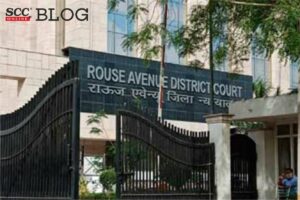Rouse Avenue District Courts, Delhi: In a case filed by Central Bureau of Investigation questioning the power of investigating agency (Police) to seek password (user ID) of the computer system seized from the accused along with password of a Tally Software which was being used by the accused in the said computer system, Naresh Kumar Laka, J., held that the accused cannot be compelled to give such information and in this regard, he is protected by Article 20(3) as well as Section 161(2) of Criminal Procedure Code (CrPC). However, the IO is within his right to access the data of the computer system and its software which were seized from the accused with the help of specialized agency or person at the risk of being accused of loss of data, if any.
Issue 1: Is there any specific provision in law to issue such directions and whether the Court has inherent power to give directions of such nature?
The Court noted that the CBI did not mention any specific provision in the present application seeking password from the accused and the Criminal Courts at the District level do not have any inherent power to pass an order of such nature.
Placing reliance on Selvi v. State of Karnataka, (2010) 7 SCC 263, the Court further noted that Section 102 and 161 CrPC give power to the investigating agency exclusively or with the help of the court under Section 91 and 93 CrPC to seek any information or document from any person including an accused but at the same time, the accused/witness is not obliged or bound to give an answer or information/document which is/are self-incriminatory being protected by his independent constitutional right as guaranteed by Article 20(3).
Thus, even the provisions mandating seeking any information for the purpose of ‘investigation’ is subject to subject to Article 20(3) which provides protection to the persons who are accused of committing criminal offences to maintain silence when they are compelled to give self-incriminating testimony.
Issue 2: Right to maintain Silence by the accused vis a vis self-incriminating testimony
On the question as to what constitutes an “incriminating testimony”, Section 161(2) CrPC uses the words “answer which may have a tendency to expose an accused to a criminal charge, penalty or forfeiture” and Article 20(3) uses the words “no person accused of an offence shall be compelled to be a witness against himself.”
In the Selva case (supra), the Supreme Court laid down the test to identify whether fact/information/testimony/evidence comes within the category of “testimonial fact” as protected by Article 20(3). In the first category, it is the oral or written statement which convey the personal knowledge of a person in respect of relevant facts that amount to “personal testimony” and in the second case the “personal testimony” can be distinguished from physical material/ evidence such as bodily substances and other physical objects.
The Court concluded that the present application comes within the first category and when statements are likely to lead to incrimination by themselves or “furnish a link in the chain of evidence”, then bar of Article 20(3) would apply.
The Court opined that a password does not itself constitute a ‘self-incriminating testimony’ against an accused who gives such password, but from practical point of view, the said password alone is not the sole objective of the IO and in fact he wants to use it for the purpose of accessing the data which is contained in a computer system or a mobile phone which is/are seized from the accused and, therefore, the said password is to be taken as integral part of the said computer system/mobile phone which is/are not severable from it.
The Court further opined that that Right to Privacy despite being a facet of Article 21 and Part-III of Constitution in general, is not absolute and it is subject to State law which withstands the touchstone of permissible restrictions on fundamental rights.
Thus, the Court held that the present application of the CBI seeking password/User ID of the computer system and Tally Software of the accused is dismissed as the accused cannot be compelled to give such information and, in this regard, he is protected by Article 20(3) as well as Section 161(2) of CrPC.
[Central Bureau of Investigation v. Mahesh Kumar Sharma, 2022 SCC OnLine Dis Crt (Del) 48, decided on 29-10-2022]
*Arunima Bose, Editorial Assistant has reported this story.

